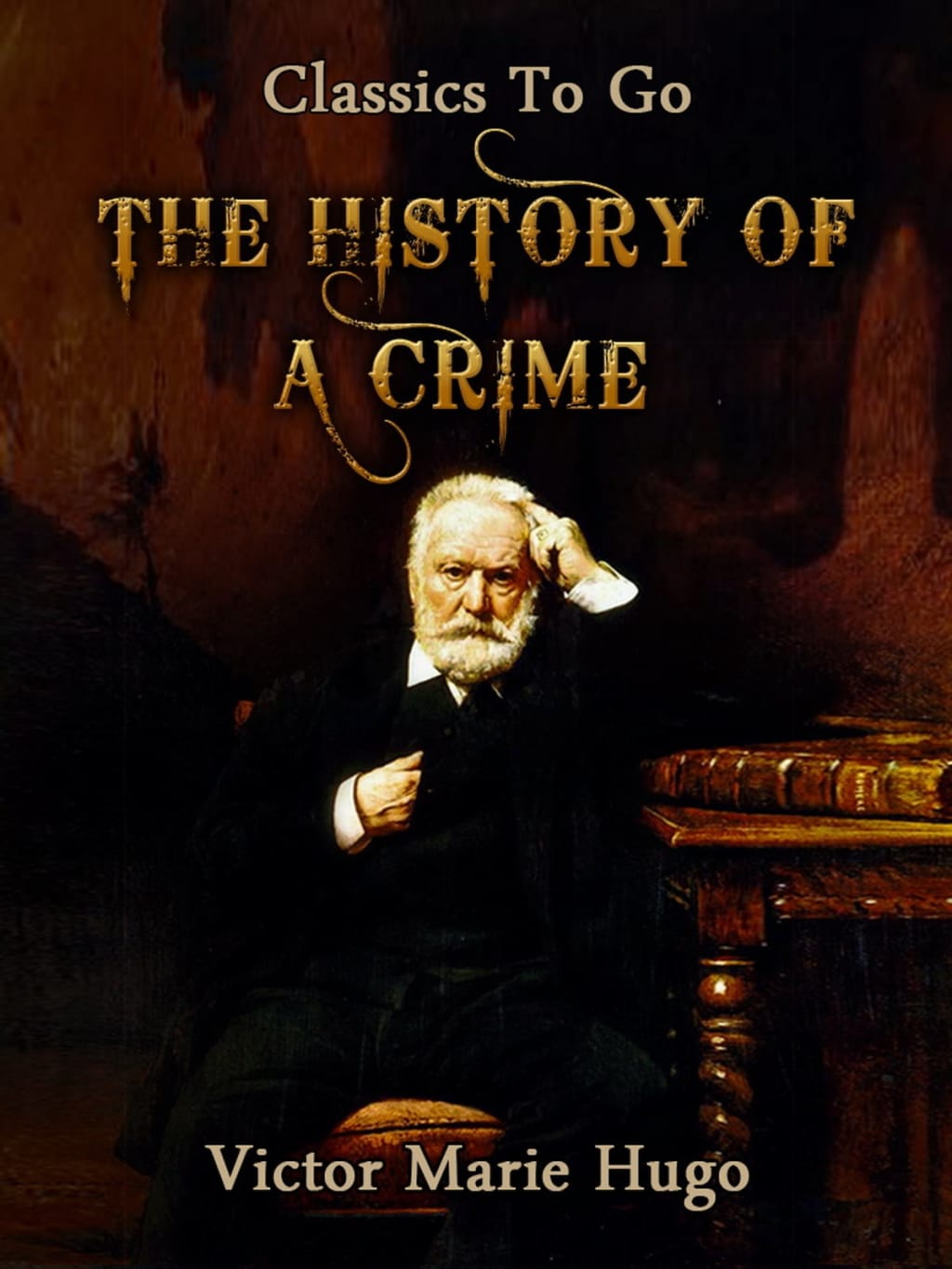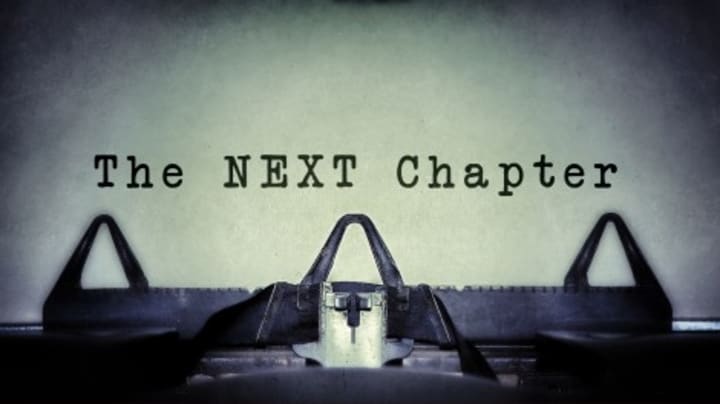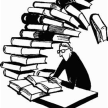THE HISTORY OF A CRIME BY VICTOR HUGO —THE FIRST DAY— CHAPTER VII
VICTOR HUGO

"The History of a Crime" is a memoir written by the French author Victor Hugo, first published in 1877. The book tells the story of the downfall of Napoleon III's Second Empire, from its peak in the early 1860s to its collapse following France's defeat in the Franco-Prussian War of 1870-71.

CHAPTER VII.
NO. 70, RUE BLANCHE The Cité Gaillard is somewhat difficult to find. It is a deserted alley in that new quarter which separates the Rue des Martyrs from the Rue Blanche. I found it, however. As I reached No. 4, Yvan came out of the gateway and said, "I am here to warn you. The police have an eye upon this house, Michel is waiting for you at No. 70, Rue Blanche, a few steps from here." I knew No. 70, Rue Blanche. Manin, the celebrated President of the Venetian Republic, lived there. It was not in his rooms, however, that the meeting was to take place. The porter of No. 70 told me to go up to the first floor.
The door was opened, and a handsome, gray-haired woman of some forty summers, the Baroness Coppens, whom I recognized as having seen in society and at my own house, ushered me into a drawing room. Michel de Bourges and Alexander Rey were there, the latter an exConstituent, an eloquent writer, a brave man. At that time Alexander Rey edited the National. We shook hands. Michel said to me,— "Hugo, what will you do?" I answered him,— "Everything." "That also is my opinion," said he. Numerous representatives arrived, and amongst others Pierre Lefranc, Labrousse, Théodore Bac, Noël Parfait, Arnauld (de l'Ariége), Demosthenes Ollivier, an ex-Constituent, and Charamaule.
There was deep and unutterable indignation, but no useless words were spoken. All were imbued with that manly anger whence issue great resolutions. They talked. They set forth the situation. Each brought forward the news which he had learnt. Théodore Bac came from Léon Faucher, who lived in the Rue Blanche. It was he who had awakened Léon Faucher, and had announced the news to him. The first words of Léon Faucher were, "It is an infamous deed." From the first moment Charamaule displayed a courage which, during the four days of the struggle, never flagged for a single instant. Charamaule is a very tall man, possessed of vigorous features and convincing eloquence; he voted with the Left, but sat with the Right. In the Assembly he was the neighbor of Montalembert and of Riancey.
He sometimes had warm disputes with them, which we watched from afar off, and which amused us. Charamaule had come to the meeting at No. 70 dressed in a sort of blue cloth military cloak, and armed, as we found out later on. The situation was grave; sixteen Representatives arrested, all the generals of the Assembly, and he who was more than a general, Charras. All the journals suppressed, all the printing offices occupied by soldiers. On the side of Bonaparte an army of 80,000 men which could be doubled in a few hours; on our side nothing. The people deceived, and moreover disarmed. The telegraph at their command. All the walls covered with their placards, and at our disposal not a single printing case, not one sheet of paper. No means of raising the protest, no means of beginning the combat. The coup d'état was clad with mail, the Republic was naked; the coup d'état had a speaking trumpet, the Republic wore a gag. What was to be done? The raid against the Republic, against the Assembly, against Right, against Law, against Progress, against Civilization, was commanded by African generals.
These heroes had just proved that they were cowards. They had taken their precautions well. Fear alone can engender so much skill. They had arrested all the men of war of the Assembly, and all the men of action of the Left, Baune, Charles Lagrange, Miot, Valentin, Nadaud, Cholat. Add to this that all the possible chiefs of the barricades were in prison. The organizers of the ambuscade had carefully left at liberty Jules Favre, Michel de Bourges, and myself, judging us to be less men of action than of the Tribune; wishing to leave the Left men capable of resistance, but incapable of victory, hoping to dishonor us if we did not fight, and to shoot us if we did fight. Nevertheless, no one hesitated. The deliberation began. Other representatives arrived every minute, Edgar Quinet, Doutre, Pelletier, Cassal, Bruckner, Baudin, Chauffour. The room was full, some were seated, most were standing, in confusion, but without tumult. I was the first to speak.
I said that the struggle ought to be begun at once. Blow for blow. That it was my opinion that the hundred and fifty Representatives of the Left should put on their scarves of office, should march in procession through the streets and the boulevards as far as the Madeleine, and crying "Vive la République! Vive la Constitution!" should appear before the troops, and alone, calm and unarmed, should summon Might to obey Right. If the soldiers yielded, they should go to the Assembly and make an end of Louis Bonaparte. If the soldiers fired upon their legislators, they should disperse throughout Paris, cry "To Arms," and resort to barricades. Resistance should be begun constitutionally, and if that failed, should be continued revolutionarily.
There was no time to be lost. "High treason," said I, "should be seized red-handed, is a great mistake to suffer such an outrage to be accepted by the hours as they elapse. Each minute which passes is an accomplice, and endorses the crime. Beware of that calamity called an 'Accomplished fact.' To arms!" Many warmly supported this advice, among others Edgar Quinet, Pelletier, and Doutre. Michel de Bourges seriously objected. My instinct was to begin at once, his advice was to wait and see. According to him there was danger in hastening the catastrophe. The coup d'état was organized, and the People were not. They had been taken unawares. We must not indulge in illusion. The masses could not stir yet. Perfect calm reigned in the faubourgs; Surprise existed, yes; Anger, no. The people of Paris, although so intelligent, did not understand. Michel added, "We are not in 1830. Charles X., in turning out the 221, exposed himself to this blow, the re-election of the 221.
We are not in the same situation. The 221 were popular. The present Assembly is not: a Chamber which has been insultingly dissolved is always sure to conquer, if the People support it. Thus the People rose in 1830. To-day they wait. They are dupes until they shall be victims." Michel de Bourges concluded, "The People must be given time to understand, to grow angry, to rise. As for us, Representative, we should be rash to precipitate the situation. If we were to march immediately straight upon the troops, we should only be shot to no purpose, and the glorious insurrection for Right would thus be beforehand deprived of its natural leaders—the Representatives of the People.
We should decapitate the popular army. Temporary delay, on the contrary, would be beneficial. Too much zeal must be guarded against, selfrestraint is necessary, to give way would be to lose the battle before having begun it. Thus, for example, we must not attend the meeting announced by the Right for noon, all those who went there would be arrested. We must remain free, we must remain in readiness, we must remain calm, and must act waiting the advent of the People. Four days of this agitation without fighting would weary the army." Michel, however, advised a beginning, but simply by placarding Article 68 of the Constitution. But where should a printer be found? Michel de Bourges spoke with an experience of revolutionary procedure which was wanting in me. For many years past he had acquired a certain practical knowledge of the masses. His council was wise. It must be added that all the information which came to us seconded him, and appeared conclusive against me.
Paris was dejected. The army of the coup d'état invaded her peaceably. Even the placards were not torn down. Nearly all the Representatives present, even the most daring, agreed with Michel's counsel, to wait and see what would happen. "At night," said they, "the agitation will begin," and they concluded, like Michel de Bourges, that the people must be given time to understand. There would be a risk of being alone in too hasty a beginning. We should not carry the people with us in the first moment. Let us leave the indignation to increase little by little in their hearts. If it were begun prematurely our manifestation would miscarry. These were the sentiments of all. For myself, while listening to them, I felt shaken. Perhaps they were right. It would be a mistake to give the signal for the combat in vain. What good is the lightning which is not followed by the thunderbolt? To raise a voice, to give vent to a cry, to find a printer, there was the first question. But was there still a free Press? The brave old ex-chief of the 6th Legion, Colonel Forestier, came in. He took Michel de Bourges and myself aside. "Listen," said he to us. "I come to you.
I have been dismissed. I no longer command my legion, but appoint me in the name of the Left, Colonel of the 6th. Sign me an order and I will go at once and call them to arms. In an hour the regiment will be on foot." "Colonel," answered I, "I will do more than sign an order, I will accompany you." And I turned towards Charamaule, who had a carriage in waiting. "Come with us," said I. Forestier was sure of two majors of the 6th. We decided to drive to them at once, while Michel and the other Representatives should await us at Bonvalet's, in the Boulevard du Temple, near the Café Turc.
There they could consult together. We started. We traversed Paris, where people were already beginning to swarm in a threatening manner. The boulevards were thronged with an uneasy crowd. People walked to and fro, passers-by accosted each other without any previous acquaintance, a noteworthy sign of public anxiety; and groups talked in loud voices at the corners of the streets. The shops were being shut. "Come, this looks better," cried Charamaule. He had been wandering about the town since the morning, and he had noticed with sadness the apathy of the masses. We found the two majors at home upon whom Colonel Forestier counted. They were two rich linendrapers, who received us with some embarrassment. The shopmen had gathered together at the windows, and watched us pass by. It was mere curiosity.
In the meanwhile one of the two majors countermanded a journey which he was going to undertake on that day, and promised us his co-operation. "But," added he, "do not deceive yourselves, one can foresee that we shall be cut to pieces. Few men will march out." Colonel Forestier said to us, "Watrin, the present colonel of the 6th, does not care for fighting; perhaps he will resign me the command amicably. I will go and find him alone, so as to startle him the less, and will join you at Bonvalet's." Near the Porte St. Martin we left our carriage, and Charamaule and myself proceeded along the boulevard on foot, in order to observe the groups more closely, and more easily to judge the aspect of the crowd.
The recent levelling of the road had converted the boulevard of the Porte St. Martin into a deep cutting, commanded by two embankments. On the summits of these embankments were the footways, furnished with railings. The carriages drove along the cutting, the foot passengers walked along the footways. Just as we reached the boulevard, a long column of infantry filed into this ravine with drummers at their head. The thick waves of bayonets filled the square of St. Martin, and lost themselves in the depths of the Boulevard Bonne Nouvelle. An enormous and compact crowd covered the two pavements of the Boulevard St. Martin. Large numbers of workmen, in their blouses, were there, leaning upon the railings. At the moment when the head of the column entered the defile before the Theatre of the Porte St. Martin a tremendous shout of "Vive la République!" came forth from every mouth as though shouted by one man.
The soldiers continued to advance in silence, but it might have been said that their pace slackened, and many of them regarded the crowd with an air of indecision. What did this cry of "Vive la République!" mean? Was it a token of applause? Was it a shout of defiance? It seemed to me at that moment that the Republic raised its brow, and that the coup d'état hung its head. Meanwhile Charamaule said to me, "You are recognized." In fact, near the Château d'Eau the crowd surrounded me. Some young men cried out, "Vive Victor Hugo!" One of them asked me, "Citizen Victor Hugo, what ought we to do?" I answered, "Tear down the seditious placards of the coup d'état, and cry 'Vive la Constitution!'" "And suppose they fire on us?" said a young workman. "You will hasten to arms." "Bravo!" shouted the crowd. I added, "Louis Bonaparte is a rebel, he has steeped himself to-day in every crime. We, Representatives of the People, declare him an outlaw, but there is no need for our declaration, since he is an outlaw by the mere fact of his treason. Citizens, you have two hands; take in one your Right, and in the other your gun and fall upon Bonaparte." "Bravo! Bravo!" again shouted the people.
A tradesman who was shutting up his shop said to me, "Don't speak so loud, if they heard you talking like that, they would shoot you." "Well, then," I replied, "you would parade my body, and my death would be a boon if the justice of God could result from it." All shouted "Long live Victor Hugo!" "Shout 'Long live the Constitution,'" said I. A great cry of "Vive la Constitution! Vive la République;" came forth from every breast. Enthusiasm, indignation, anger flashed in the faces of all. I thought then, and I still think, that this, perhaps, was the supreme moment. I was tempted to carry off all that crowd, and to begin the battle. Charamaule restrained me. He whispered to me,— "You will bring about a useless fusillade. Every one is unarmed. The infantry is only two paces from us, and see, here comes the artillery." I looked round; in truth several pieces of cannon emerged at a quick trot from the Rue de Bondy, behind the Château d'Eau.
The advice to abstain, given by Charamaule, made a deep impression on me. Coming from such a man, and one so dauntless, it was certainly not to be distrusted. Besides, I felt myself bound by the deliberation which had just taken place at the meeting in the Rue Blanche. I shrank before the responsibility which I should have incurred. To have taken advantage of such a moment might have been victory, it might also have been a massacre. Was I right? Was I wrong? The crowd thickened around us, and it became difficult to go forward. We were anxious, however, to reach the rendezvous at Bonvalet's. Suddenly some one touched me on the arm. It was Léopold Duras, of the National. "Go no further," he whispered, "the Restaurant Bonvalet is surrounded. Michel de Bourges has attempted to harangue the People, but the soldiers came up. He barely succeeded in making his escape. Numerous Representatives who came to the meeting have been arrested. Retrace your steps. We are returning to the old rendezvous in the Rue Blanche.
I have been looking for you to tell you this." A cab was passing; Charamaule hailed the driver. We jumped in, followed by the crowd, shouting, "Vive la République! Vive Victor Hugo!" It appears that just at that moment a squadron of sergents de ville arrived on the Boulevard to arrest me. The coachman drove off at full speed. A quarter of an hour afterwards we reached the Rue Blanche.

About the Creator
Jananan Sandajeshan
As a book reviewer and writer, I am dedicated to sharing my love of literature with others. I believe that books have the power to educate, inspire, and transform us, and I'm committed to helping readers find the stories that resonate most.






Comments
There are no comments for this story
Be the first to respond and start the conversation.